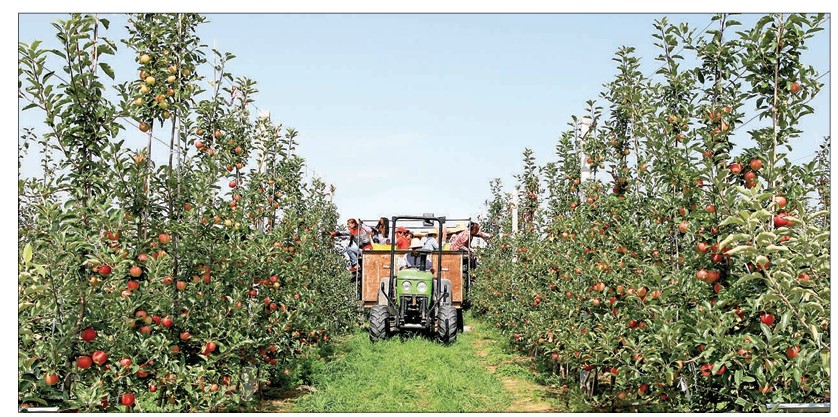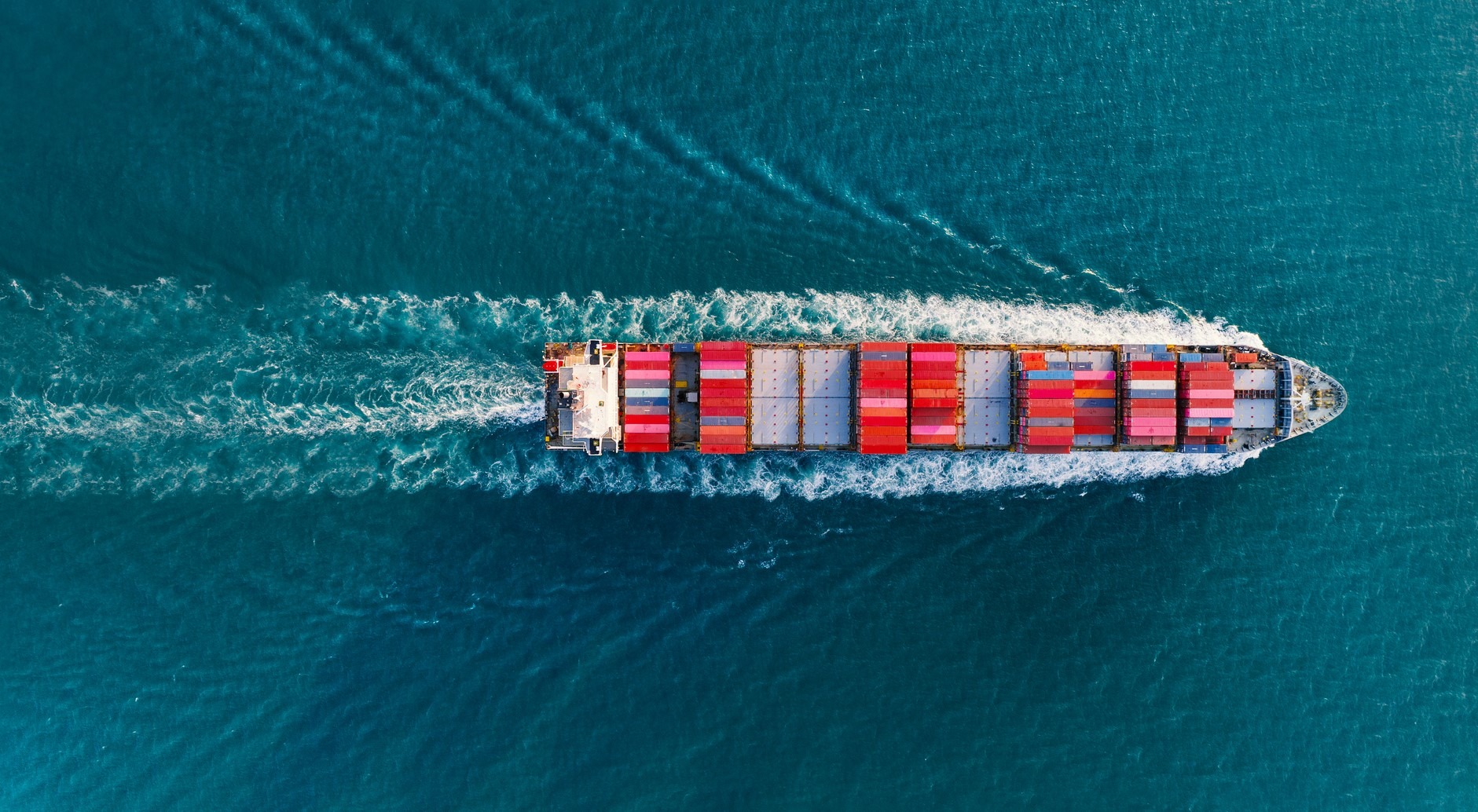Investments in Food Security

Investing in food security
Food security refers to the extent to which a country is able to provide its food needs under various circumstances, whether locally produced or imported from abroad. Available investments in this field are attracting increasing interest from different countries around the world, supported by the rapid increase in the world’s population and the need to secure their food. Agricultural production and food industries have a clear economic, social and environmental footprint, representing about $5 trillion, or 10% of global consumer spending. In contrast, the value of the food gap in the Arab world currently exceeds $34 billion, with grains accounting for 50% of it, with expectations of reaching $60 billion in 2030.
The climatic conditions in the Gulf countries do not allow them to be completely self-sufficient in providing food, and therefore they are forced to invest in countries rich in water and agricultural areas that would secure part of their food needs. Governments are constantly searching for available opportunities to increase their self-sufficiency in food, especially for basic commodities. However, with the huge investments that have been pumped into this field, it is still difficult to say that any country in the world has complete self-sufficiency in food, as what has been done has enabled some countries to obtain relative self-sufficiency in some commodities.
Components and factors:
Accordingly, the trend towards investing in external food security projects, especially in countries that lack the components and factors required for agricultural activities and livestock breeding, is seen as one of the available ways to secure part of their needs. It contributes to reducing the cost of land reclamation, water desalination and the use of energy supported by governments. In some cases, it also contributes to reducing operating costs, securing labor and reducing expatriate labor. It is an ideal solution to this problem, which has become an obsession for many countries.
Agricultural investment abroad varies in form, some of which are done through purchasing shares in existing companies that produce basic food commodities, or through concluding long-term purchase contracts, or through direct investment in projects, and the direction towards them varies according to the level of return and return on capital. The need to secure food has prompted many investors to direct their investments towards investing in this field, as some reports indicate that investments in this sector in 2013 exceeded $100 billion, and on average, they return higher total returns to investors compared to other sectors.
It also requires investors to have practical experience, a deep understanding of crops, and a study of geographical and environmental aspects, crop quality, and the appropriate time for planting them in order to choose the optimal area for investment, as well as understanding the requirements of value-added chains such as seeds and their inputs, production, processing, and retail. For example, it is easy to invest in rice farms and import and store its different types (white or brown), but the cost of processing them differs, which negatively affects the purchase bill for individuals on the one hand and the costs of government support for basic products in the local market on the other hand.
Investors in agricultural and livestock projects face many challenges and obstacles, including weak infrastructure in countries rich in natural resources, which is considered one of the most important obstacles and problems facing investment in food security projects abroad, in addition to the impact of climate change and the risks of crop price fluctuations, weak investment legislation and mechanisms for protecting foreign capital, the suitability of judicial systems and capital protection procedures, and the levels of restrictions imposed on the movement of funds and the costs of currency exchange rate differences.
Political tension:
This is in addition to the risks of political tensions with the countries in which the investment is made, which increases the risk of investment and may result in the failure of these investments or a decrease in their returns. The availability of the logistical infrastructure for storage and shipping has a direct impact on the cost of goods in the markets and their returns. In addition, adherence to the laws of the country in which the investment is made is considered one of the most prominent obstacles to foreign investment in general and food security in particular, which may carry unfair conditions for capital in some cases, such as requirements for the local market to be sufficient before allowing exports, especially for some major crops such as wheat, for example. Asian countries are at the forefront of the world's major players in agricultural activities. India is considered one of the largest producers of rice, accounting for about 20% of the total global production, and comes second in terms of grain production in the world after Thailand, due to its vast agricultural areas and high annual rainfall rates, which make it climatically suitable for the production of agricultural crops, which enabled it to occupy the third place in the world in wheat production after the European Union and China, as India produces about 89 million metric tons of wheat.
Arab countries:
As for the Arab countries, Morocco is one of the most important countries that have natural resources that encourage attracting investments in the field of food security, due to the availability of water in a good proportion, the abundance of arable land, and its distinction in the abundance of fertilizers in large quantities, as it is considered the first source of phosphate in the world, which makes it one of the main contributors to maintaining global food security.
Sudan also has the environmental components to attract agricultural and livestock investments, as it has about 175 million acres of arable land, and 102 million heads of cattle, and enjoys a high annual rainfall rate of more than 400 billion cubic meters, and agriculture contributes 48% of Sudan's gross domestic product, and perhaps the recent decision related to lifting sanctions on Sudan will finally enable the Sudanese government to catch up with the Asian tigers if it succeeds in providing an investment climate for capital.
The insightful vision of our wise government and its early realization of the necessity of securing the basic needs of the state, enabled it to achieve great achievements in this field during the past years, including the entry of the Qatar Investment Authority into agricultural and animal investments abroad and the expansion of its investments there, and distributing them to different geographical areas to ensure diversity in its investments, and achieving sustainability in securing food security at the local level and contributing to facing its challenges at the global level, which resulted in providing important food commodities in the state in sufficient quantities for all citizens and residents, which attracted attention, especially with the imposition of the unjust blockade on the state, and will enable it to contribute to maintaining price levels in the local market by controlling the rates of change in supply and demand levels.
The state of Qatar has invested in one of the largest agricultural projects in the Nile River State in Sudan, covering an area of 265 thousand acres, in the field of red and white meat, and manages 13 agricultural complexes in Australia, producing about 250 thousand heads of sheep, about 180 thousand tons of grains, in addition to 8 thousand tons of green fodder annually, in addition to vegetables, basmati rice, dates, olive oil and other high-quality products with various investments in Australia, Pakistan and Oman, in addition to large farms in the local market that produce more than 28 types of vegetables and investments in the field of poultry and dairy.
The Qatari Government Investments:
The Qatari government is currently developing specialized facilities for storing, converting, refining and packaging the most important food commodities such as rice, raw sugar and edible oils within the Hamad Port project facilities at a cost exceeding 1.6 billion riyals, for local use to meet the needs of three million people for two years, which helps the government reduce the severity of the impact of economic and political crises, and create opportunities for re-export to foreign markets. The project will also include facilities specialized in re-refining the residues resulting from the preparation of food commodities and converting them into feed that meets the needs of animal investments, which means added value to these investments.
When looking at these investments, they open up many additional investment opportunities that complement them, such as investment in the field of maritime shipping and industrial production projects for crops invested in internally or externally. For example, in some periods or seasons, the price of some agricultural crops such as tomatoes is very low. If some aspects of investment in industrial production are found, this means that it is possible to manufacture tomato sauce or tomato juice, which means greater gains for value-added chains, which serves these investments, achieves operational integration and maximizes investment returns for the state.
The next phase:
The next phase requires establishing an independent organization that works to implement the strategies of the wise leadership and develop policies related to food security at the state level, to supervise the establishment and management of the reserve stock with the private sector, and coordinate with various government agencies to include food security requirements within the state's infrastructure development plans, and raise the contribution of the food sector to the GDP by increasing local agricultural, livestock and fish production, and achieve self-sufficiency in some food products by applying international best practices and coordinating with investment funds and private sector investors to support domestic and foreign investment, and discussing investment patterns appropriate to the country's needs and determining their priorities, and encouraging the private sector to invest in food security areas by providing detailed data on the needs of the food market, as well as following up on subsidized food commodities and items at the state level, to contribute effectively to developing the national economy and enhancing food security, reaching sustainable food security with its elements represented in import, storage, production and distribution.
Published in Lusail Newspaper
20 November 2017
